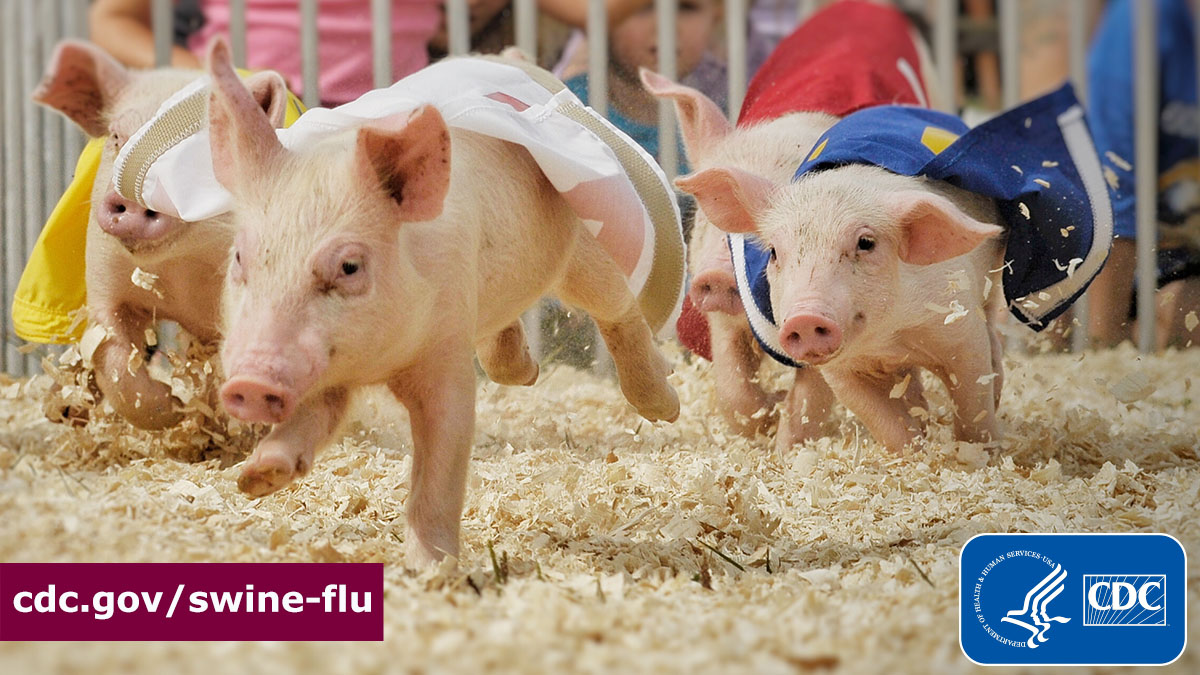About Swine/Variant Flu (original) (raw)
- Swine influenza is a respiratory disease of pigs caused by type A influenza viruses that regularly cause outbreaks of influenza in pigs.
- Influenza viruses that commonly circulate in swine are called “swine influenza viruses” or “swine flu viruses.”
- Like human influenza viruses, there are different subtypes and strains of swine influenza viruses.
- The main swine influenza viruses circulating in U.S. pigs in recent years have been, swine triple reassortant (tr) H1N1 influenza virus, trH3N2 virus, and trH1N2 virus.

Overview
Swine flu viruses do not normally infect humans. However, sporadic human infections with influenza viruses that normally circulate in swine and not people have occurred. When this happens, these viruses are called "variant viruses." They also can be denoted by adding the letter "v" to the end of the virus subtype designation. Human infections with H1N1v, H3N2v and H1N2v viruses have been detected in the United States.
Case Counts
CDC data on the most current case counts for variant flu virus infections in humans reported in the United States.
Resources
It is possible to lessen the risk of influenza A virus infections in pigs and/or severity of disease...
Feb. 26, 2024
Swine flu is a respiratory disease that regularly causes outbreaks in pigs.
Mar. 22, 2024
Human infections with variant influenza viruses usually occur in people exposed to infected pigs
June 27, 2024
July 8, 2024